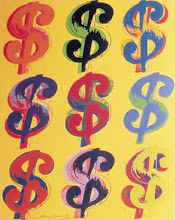To accept a ... circulated bill of exchange was not only to accept a form of paper money but to express trust in one's own ability to read character and trust in the capacity of one's fellow citizens to do likewise. If the system were to survive, it depended not only on the soundness of the slave markets for the Caribbean but on the stability of this network of mutually invested trust, and, ideally, on some means of training individuals in how to read one another's character, trustworthiness, and credibility. An accounting innovation, "a modern method of remitting a Guinea cargo," clearly was not, by itself, enough. For that method to survive and extend itself, it required a complementary social practice and a complementary practice of social reading, a habit of intersubjective analysis that would train readers to read not only the face value and negotiable worth of the bills they were exchanging but the credibility of their partners to these exchanges and the credibility of this system of exchange itself. Commodity culture, Benjamin reveals, is the practical expression of a particular phenomenology of things. The same is true of the speculative culture of finance capitalism. A system of credit encompasses more than just a set of accounting protocols, more than just a table of debts. It demands a phenomenology of transactions, promises, character, credibility (p.64).
We should not trust zombie banks. While others will argue that the phenomenology of trust broke down when the banks started loaning money to the "wrong people," the more significant breach of the current system was the process by which mortgage debt was securitized and made available for speculation. I would argue that the opacity of these financial instruments doomed the intersubjective reading protocols required for finance capital to maintain itself. If Baucom's philosophy of history is illustrative, then the current crisis may be of such magnitude that we may witness a turn away from the primacy of finance capital and the re-emergence of commodity capitalism. In other words, the long twentieth century, that begins with the financialization of the slave trade in the 18th century may be coming to an end in the first decade of the 21st century. Given the amount of US debt held by China the end of the long twentieth century may also signal the Pacific as the hegemon of global capitalism.
I should add this book has some marvelous ideas about re-situating parts of public address history within a less nationalist frame. For those of us interested in models for a post national public address (for one attempt, see Greene and Kuswa 2002), this book offers a useful way into the Atlantic as the political-economic-cultural space of consideration and, as I just suggested, the likely importance of the Pacific for the rest of this century.



